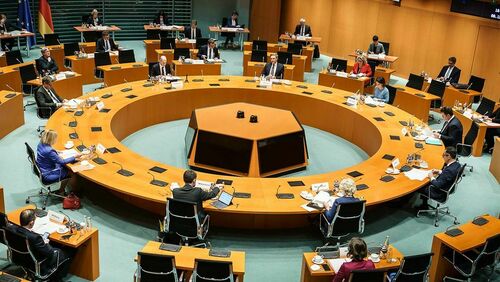Start-ups play an important role in the further development of the German economy. That is why the Federal Cabinet has now adopted the first comprehensive start-up strategy: among other things, start-ups are to be given less bureaucratic and faster access to funding and financing.
The Federal Cabinet has adopted the first comprehensive start-up strategy of a federal government. The goal is to strengthen the start-up ecosystems in Germany and Europe. In particular, the startup strategy aims to simplify legally secure access for startups and young companies to public contracts as well as startup spin-offs from science. In future, start-ups should be able to be implemented completely digitally and, if possible, within 24 hours. To this end, the relevant online services of the federal government, the Länder and notaries will be linked, thus taking an important step towards a one-stop shop so that start-ups can obtain information and applications from a single source. In addition, the Startup Strategy reduces hurdles for women and people with a migration background in accessing financing and funding and offers better access to venture capital for female founders.
The Federal Government wants to significantly expand financing opportunities for start-ups and strengthen companies in various financing phases with a focus on the capital-intensive growth phase. Together with private investors, the Federal Government wants to make a decisive contribution to mobilising more private and public capital for Germany as a venture capital location.
With the Future Fund and its individual modules, the Federal Government wants to support innovative technology-oriented start-ups in their growth phase and is providing KfW with ten billion euros in public funds for this purpose over an investment period until 2030. Together with private investors, it intends to mobilise 30 billion euros in private and public capital for Germany as a venture capital location during this period.
Following the cabinet decision, implementation of the measures, which are divided into ten fields of action, will now begin:
Strengthen funding for start-ups,
Make it easier for start-ups to attract talent – make employee ownership more attractive,
Ignite start-up spirit – make start-ups easier and more digital,
Strengthening female start-up founders and diversity in start-ups,
Startup-Ausgründungen aus der Wissenschaft erleichtern,
Improve framework conditions for public benefit oriented start-ups,
Mobilise start-up competences for public contracts,
Make it easier for start-ups to access data,
Strengthen real labs – facilitate access for start-ups,
Putting start-ups at the centre.
The start-up strategy has emerged from an extensive participation process: Many stakeholders contributed their perspectives and expertise in workshops and an online consultation. The Federal Government took these into account when drawing up the strategy.
The Federal Government wants to promote the networking of all relevant actors in the start-up ecosystem. To this end, it will organise a “Start-up Summit Germany” for the first time together with stakeholders. A network of contact points for start-ups in all federal ministries and subordinate authorities will be established. The dialogue with all relevant stakeholders will be continued on a regular basis, this also applies in particular to the exchange between the Federal Government and the Länder.
Many of the means mentioned are already in preparation and can be realised relatively quickly: The Federal Government intends to implement the measures bundled in the Startup Strategy within this legislative period and report annually on the status of implementation. In addition, it will regularly review whether and how the strategy should be further developed. In doing so, the Federal Government will continue to maintain a dialogue with all relevant stakeholders.
The Federal Government’s Startup Strategy is published here.
Source: Press release

